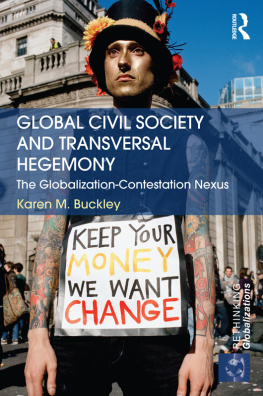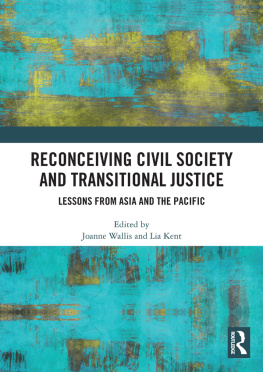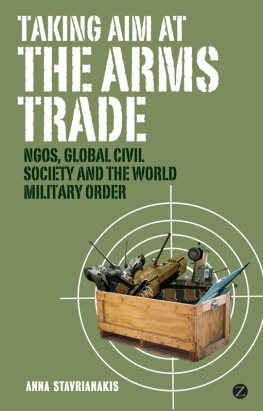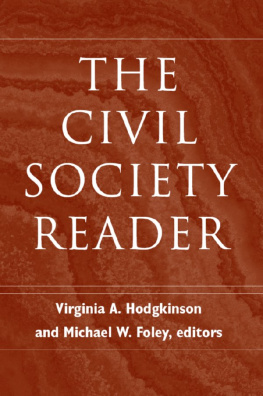DECOLONIZING CIVIL SOCIETY IN MOZAMBIQUE
Politics and Development in Contemporary Africa
Published by one of the worlds leading publishers on African issues, Politics and Development in Contemporary Africa seeks to provide accessible but in-depth analysis of key contemporary issues affecting countries within the continent. Featuring a wealth of empirical material and case study detail, and focusing on a diverse range of subject matter from conflict to gender, development to the environment the series is a platform for scholars to present original and often provocative arguments. Selected titles in the series are published in association with the International African Institute.
The principal aim of the International African Institute is to promote scholarly understanding of Africa, notably its changing societies, cultures and languages. Founded in 1926 and based in London, it supports a range of seminars and publications, including the journal Africa.
www.internationalafricaninstitute.org
Managing Editor: Stephanie Kitchen
Series Editors: Jon Schubert (Brunel University) and Elliot Green (London School of Economics and Political Science)
Editorial board
Rita Abrahamsen (University of Ottawa); Morten Boas (Norwegian Institute of International Affairs); David Booth (Overseas Development Institute); Padraig Carmody (Trinity College Dublin); Neil Carrier (University of Bristol); Fantu Cheru (Leiden University); Kevin Dunn (Hobart and William Smith Colleges); Amanda Hammar (University of Copenhagen); Alcinda Honwana (Open University); Paul Jackson (University of Birmingham); Gabrielle Lynch (University of Warwick); Zachariah Mampilly (Vassar College); Henning Melber (Dag Hammarskjld Foundation); Garth A. Myers (Trinity College Hartford Connecticut); Lonce Ndikumana (UMass Amherst); Cyril Obi (Social Science Research Council); Susan Parnell (University of Cape Town); Mareike Schomerus (Overseas Development Institute); Laura Seay (Morehouse College); Howard Stein (University of Michigan); Mats Utas (Uppsala University); Alex de Waal (Tufts University)
Already published
Mobility between Africa, Asia and Latin America: Economic Networks and Cultural Interactions, edited by Ute Rschenthaler and Alessandro Jedlowski
Agricultural Reform in Rwanda: Authoritarianism, Markets and Spaces of Governance, Chris Huggins
Liberias Female Veterans: War, Roles and Reintegration, Leena Vastapuu and Emmi Nieminen
Food Aid in Sudan: A History of Power, Politics and Profit, Susanne Jaspars
Kakuma Refugee Camp: Humanitarian Urbanism in Kenyas Accidental City, Bram J. Jansen
Development Planning in South Africa: Provincial Policy and State Power in the Eastern Cape, John Reynolds
Uganda: The Dynamics of Neoliberal Transformation, Jrg Wiegratz, Giuliano Martiniello, and Elisa Greco
AIDS in the Shadow of Biomedicine: Inside South Africas Epidemic, Isak Niehaus
Negotiating Public Services in the Congo: State, Society and Governance, Tom De Herdt and Kristof Titeca
BRICS and Resistance in Africa: Contention, Assimilation and Co-optation, edited by Justin van der Merwe, Patrick Bond, and Nicole Dodd
Ironies of Solidarity: Insurance and Financialization of Kinship in South Africa, Erik Bhre
Africas Shadow Rise: China and the Mirage of African Economic Development, Pdraig Carmody, Peter Kragelund, and Ricardo Reboredo
Malawi: Economy, Society and Political Affairs, edited by Matthias Rompel and Reimer Gronemeyer
Entrepreneurs and SMEs in Rwanda Conspicuous by Their Absence, David Poole
Forthcoming titles
Contesting Africas New Green Revolution: Biotechnology and Philanthrocapitalist Development in Ghana, Jacqueline Ignatova
Youth on the Move: Views from Below on Ethiopian International Migration, Fana Gebresenbet and Asnake Kefale
Politics of Fear in South Sudan: Generating Chaos, Creating Conflict, Daniel Akech Thiong
War, Women and Post-Conflict Empowerment: Lessons from Sierra Leone, Josephine Beoku-Betts and Fredline MCormack-Hale
Angolas Securitized State: Reframing Hegemonic Power and National Identity, Paula Roque
Economic Diversification in Nigeria: Fractious Politics and an Economy Beyond, Zainab Usman
I dedicate this book to my mum who passed away in the middle of the research carried out for this book. I further dedicate this book to my husband Abdul Ilal who inspired me to examine civil society, development and social transformation in Mozambique in the way I did it. I am deeply grateful to the Mozambican research team, which accompanied the research process leading to this book: Incio Arnaldo, Jssica Ivo, Rude Matinada, Material Gaudencio, Jos Antnio Piletiche and Joanna Salvador. A special thanks goes to Professor Ronaldo Munck, who encouraged and inspired the writing of this book, his critical perspective and advice took me along various crucial intersections (theoretical, political, social). Thanks to Professors John Doyle and Ulrich Bartosch which have both provided valuable ideas during the research for this book.
Personal Note:
During research carried out for this book, particular attention has been given to how the objectives of this study were introduced to the research team and informants and to power, as a central aspect to be considered in cross-cultural research relationships. I recognize that in research with cross-cultural participants, power imbalance that is rooted in colonialism and academic imperialism (Hettne 1995), is still a major problem for knowledge production. Conscious of this fact, I have tried to adapt myself to local circumstances and where appropriate, provided information about my own history of living in Mozambique from 2000 to 2008. I also put particular strong emphasis on the participatory nature of the research process informing this book. Both, I felt, helped to reduce the power imbalance that inevitably existed between me as a white, relatively wealthy, female researcher and the mozambican, mainly male research team, and some of the marginalized men and women participating in this research. Spivak (1998, p. 271) describes the inevitable power imbalance clearly:
An understanding of contemporary relations of power, and of the Western intellectuals role within them, requires an examination of the intersection of a theory of representation and the political economy of global capitalism. A theory of representation points, on the one hand, to the domain of ideology, meaning and subjectivity, and, on the other hand, to the domain of politics, the state and the law.
During my research, I was not able to escape my own subjectivity that is undoubtedly influenced by Western education. However, my experiences of working eight years with civil society in Mozambique, and the engagement with post-colonial theory, have helped me to find a niche, outside the Western dominated theories, in order to critique them.
Development continues to exercise a fascination for many of us because it signifies progress and a move towards greater equality in what we used to call the Third World. And yet it is an empty signifier most often filled by thoroughly non-progressive international organizations that include, let us be frank, most Non-Governmental Organizations (NGOs).









